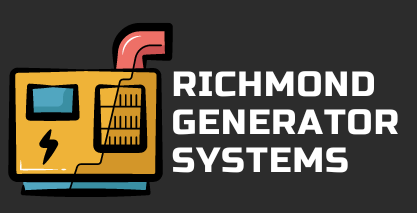
Whole House Generators in Montrose Heights VA
When it comes to ensuring your home remains powered during outages, a whole house generator is an excellent investment. These systems provide peace of mind by maintaining electricity flow for all your home's needs. A whole house generator is a backup power system designed to provide electricity to your entire home during a power outage. Unlike portable generators, which power specific appliances or circuits, whole house generators are permanently installed and are capable of running your home's essential systems simultaneously.
There are primarily two types of whole house generators: standby generators and portable generators. Standby generators are permanently installed outside your home and are connected directly to your electrical system. They automatically start when a power outage is detected. Portable generators, while generally more affordable, require manual setup and connection but offer flexibility in terms of usage.
What We Offer
We provide a range of whole house generators in Montrose Heights, VA tailored to meet the needs of every household. Our offerings include both standby and portable models from leading brands, ensuring reliability and efficiency. We work closely with you to understand your specific power needs and recommend the most suitable generator for your home.
- Residential Generators
- Commercial Generators
- Portable Generators
- Electric Generators
- Propane Generators
- Solar Generators
- Generator Repairs
- Generator Maintenance
- Generator Parts

We will get back to you as soon as possible.
Please try again later.
How Do They Work?
Whole house generators work by detecting power outages through an automatic transfer switch. When an outage occurs, the generator starts up and begins supplying power to your home’s electrical system. This switch is crucial because it isolates the house’s electrical system from the utility grid, preventing backfeeding which could endanger utility workers.
Once the generator is running, it powers your home through the same circuits used by your main electrical supply. This means that all your appliances, lighting, and HVAC systems will continue to function as normal until the utility power is restored.
Fuel Sources
Whole house generators typically operate on one of three fuel sources: natural gas, propane, or diesel.
- Natural Gas: This is a popular choice because it’s convenient and the generator can be continuously fueled as long as the gas supply is intact. However, it may not be available in all areas.
- Propane: Propane generators are a good alternative if natural gas isn’t available. They require a separate propane tank, which can be filled regularly.
- Diesel: Diesel generators are known for their durability and ability to handle heavy loads. They are often used in commercial settings but can be an option for residential use as well.
Installation Steps, Testing, and Commissioning
Installing a whole house generator involves several key steps:
- Site Assessment: We evaluate your property to determine the optimal location for the generator. This includes considering factors such as fuel source and proximity to your home’s electrical system.
- Permits and Regulations: We handle all necessary permits and ensure compliance with local building codes and regulations.
- Installation: The generator is installed on a concrete pad or similar base. We connect it to your home’s electrical system and the chosen fuel source.
- Testing: After installation, we conduct thorough testing to ensure the generator operates correctly and integrates seamlessly with your home’s electrical system.
- Commissioning: The generator is officially commissioned, which includes configuring settings and performing final checks to ensure optimal performance.
Regular Maintenance Tasks
To keep your whole house generator running smoothly, regular maintenance is essential. Tasks include:
- Routine Inspections: Check the generator’s components for wear and tear.
- Oil Changes: Regularly change the oil to ensure the engine remains lubricated.
- Filter Replacements: Replace air and fuel filters to maintain efficient operation.
- Battery Checks: Ensure the battery is fully charged and in good condition.
- Exercise Runs: Run the generator periodically to ensure it remains operational and to prevent issues from inactivity.
Diagnosing and Addressing Common Problems
Common issues with whole house generators can include:
- Startup Problems: If the generator fails to start, it could be due to fuel issues, battery problems, or electrical faults.
- Power Output Issues: Problems with the generator's output could stem from faulty wiring or a malfunctioning transfer switch.
- Overheating: Generators can overheat if they’re not properly maintained or if they’re under excessive load.
For each of these issues, it's crucial to consult a professional to diagnose and address the problem effectively.
Considerations When Choosing a Whole House Generator
When selecting a whole house generator, consider factors such as:
- Power Requirements: Determine the wattage needed to run your home’s essential systems.
- Fuel Availability: Choose a generator based on the availability and cost of fuel in your area.
- Generator Size: Ensure the generator is appropriately sized for your home and can handle your power needs.
- Noise Levels: Some generators are quieter than others, which might be an important consideration for residential areas.
Importance of Having a Reliable Backup Power Source
Having a reliable backup power source is crucial for several reasons:
- Uninterrupted Service: It ensures that you maintain essential services like heating, cooling, and refrigeration during power outages.
- Safety and Security: Keeps security systems and lighting operational, enhancing safety during outages.
- Comfort: Provides continuous power for everyday conveniences, reducing stress and inconvenience during emergencies.
Common FAQs
Here are some frequently asked questions about whole house generators:
- How often should I run my generator?
It’s recommended to run your generator monthly for a short period to keep it in good working condition.
- What is the average lifespan of a whole house generator?
Most generators last between 10 to 20 years with proper maintenance.
- Can I install a whole house generator myself?
It’s best to hire a professional for installation to ensure safety and compliance with local codes.
For more information about whole house generators or to schedule a consultation in Montrose Heights, VA, contact us today. We are here to help you choose the right generator for your home, provide expert installation, and ensure that you have a reliable backup power source ready for any situation.
Let's Connect!
Looking for reliable power solutions? Look no further than us! Our expert team is here to help you understand how whole house generators work and why they're essential. Don't get caught in the dark! Check out our buyer's guide and discover the reasons for the loss of power. Contact us today for a consultation!